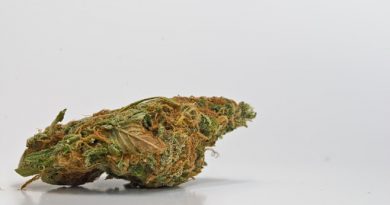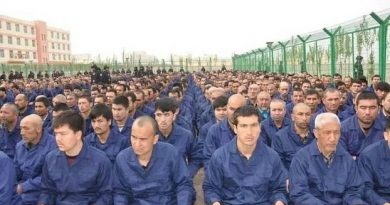FOCUS on Vaccine Diplomacy: India
Chimdi Chukwukere
Staff Writer
Since the beginning of the COVID-19 pandemic, developing countries faced long delays obtaining access to vaccines due to vaccine nationalism and hoarding by rich countries. To fill the gap, India has emerged as a ‘vaccine superpower’ and source of hope to poorer countries, which are unable to access vaccines due to their high cost and unavailability. India is offering governments in developing nations both the locally-manufactured British AstraZeneca vaccine and its own home-grown vaccine, Covaxin.
Just days after India rolled out its domestic inoculation program – which has so far inoculated more than 30 million people – Prime Minister Narendra Modi announced that India will supply countries with vaccines through a foreign policy initiative called Vaccine Maitri. Republic World reports that New Delhi sent 58.64 million made-in-India vaccines doses to more than 70 countries since January 20, including Bangladesh, Myanmar, Nepal, Bhutan, the Maldives, Mauritius, Seychelles, Sri Lanka, Iran, Cambodia, Bahrain, Canada, Oman, Afghanistan, Barbados, and the Dominican Republic. According to External Affairs Ministry spokesperson Anurag Srivastava, more than 6 million vaccine doses have been supplied as aid, with the others being sent on a commercial basis.
“Instead of securing a country by sending troops, you can secure the country by saving lives, by saving their economy, by helping with their vaccination,” said Dania Thafer, the executive director of the Gulf International Forum, a Washington-based think tank, according to the New York Times. This is exactly what India is doing as it continues to donate millions of vaccines to neighboring states in Southeast Asia, Latin America, Europe, and Africa – experts have dubbed such moves as “vaccine diplomacy.” India also offered 1.1 billion vaccine doses to the WHO’s COVAX program to distribute inoculations to poorer countries.
So far, New Delhi’s successful vaccine diplomacy has been possible due to certain factors, included the cost-effectiveness of the vaccines, the efficiency of India’s pharmaceutical industry, and the increasing need to counter China’s influence in the Asia-Pacific. India’s pharmaceutical industry is the world’s largest producer and exporter of generic drugs, accounting for more than 25 percent of generic drugs produced globally. It also accounts for more than 60 percent of manufactured global vaccines – this huge manufacturing capacity gives India leverage and empowerment to meet global vaccine demands. The Serum Institute of India (SII) manufactures 1.5 billion vaccine doses every year from the company’s manufacturing plant in Pune and is currently by far the largest vaccine maker in the world, according to BBC News.
Pharmaceutical production costs in India are also among the lowest in the world. According to Hindustan Times, India’s home-grown vaccine, Covaxin, costs barely $4.06 per dose, compared to U.S. pharmaceuticals-made vaccines Novavax ($15.35), Pfizer-BioNTech ($19.80), and Moderna ($25-$37), Johnson & Johnson ($10). Even when compared to Russia’s vaccine, Sputnik V ($10), China’s Sinopharm ($77.80), and Sinovac ($14), India’s Covaxin ($4.06) appears to be the cheapest. Possessing the capacity to manufacture high-quality vaccines at very cost-effective rates has given India the ability to donate millions of doses to neighboring states and partners.
In a recent op-ed with Project Syndicate, Shashi Tharoor, a former UN under-secretary-general, former Indian Minister of State for External Affairs, and current MP for the Indian National Congress, suggested that India’s vaccine diplomacy should not be considered as purely “altruistic.” Rather, India’s vaccine diplomacy should be viewed as seeking to leverage its scientific and technological know-how for influence in the international system. He further urged developing countries to remember to pay the goodwill back when an opportunity arises, noting that “if and when the permanent seats at the United Nations Security Council are ever rearranged, grateful governments will know who has done the most to save a world reeling from the onslaught of a deadly pathogen.”
Yet, India’s vaccine diplomacy is not immune to challenges and pushbacks. Recently, several European and Asian countries temporarily suspended the roll-out and use of the Oxford-AstraZeneca vaccine over concerns that it may be causing blood clots in recipients. The World Health Organization refuted such claims, reassuring countries that the ‘benefits of the AstraZeneca vaccine outweigh its risks and therefore recommends it.” However, this has not deterred New Delhi from sending vaccines to more African countries. In fact, according to a recent report from the Hill, the biopharmaceutical company Ocugen Inc. expects to sell 100 million doses of India’s Covaxin vaccine in the U.S. this year upon emergency use regulatory approval from the Food and Drug Administration (FDA).
As the United States and the European Union focuses on the inoculation of its citizens and China falters in meeting global demands, India has stepped up and is filling the void as a great power would. Their vaccine diplomacy continues to help mend relations with neighboring states like Bangladesh and Sri Lanka, and solidified relations with Cambodia, Seychelles, and Nepal – all states within its sphere of influence.


